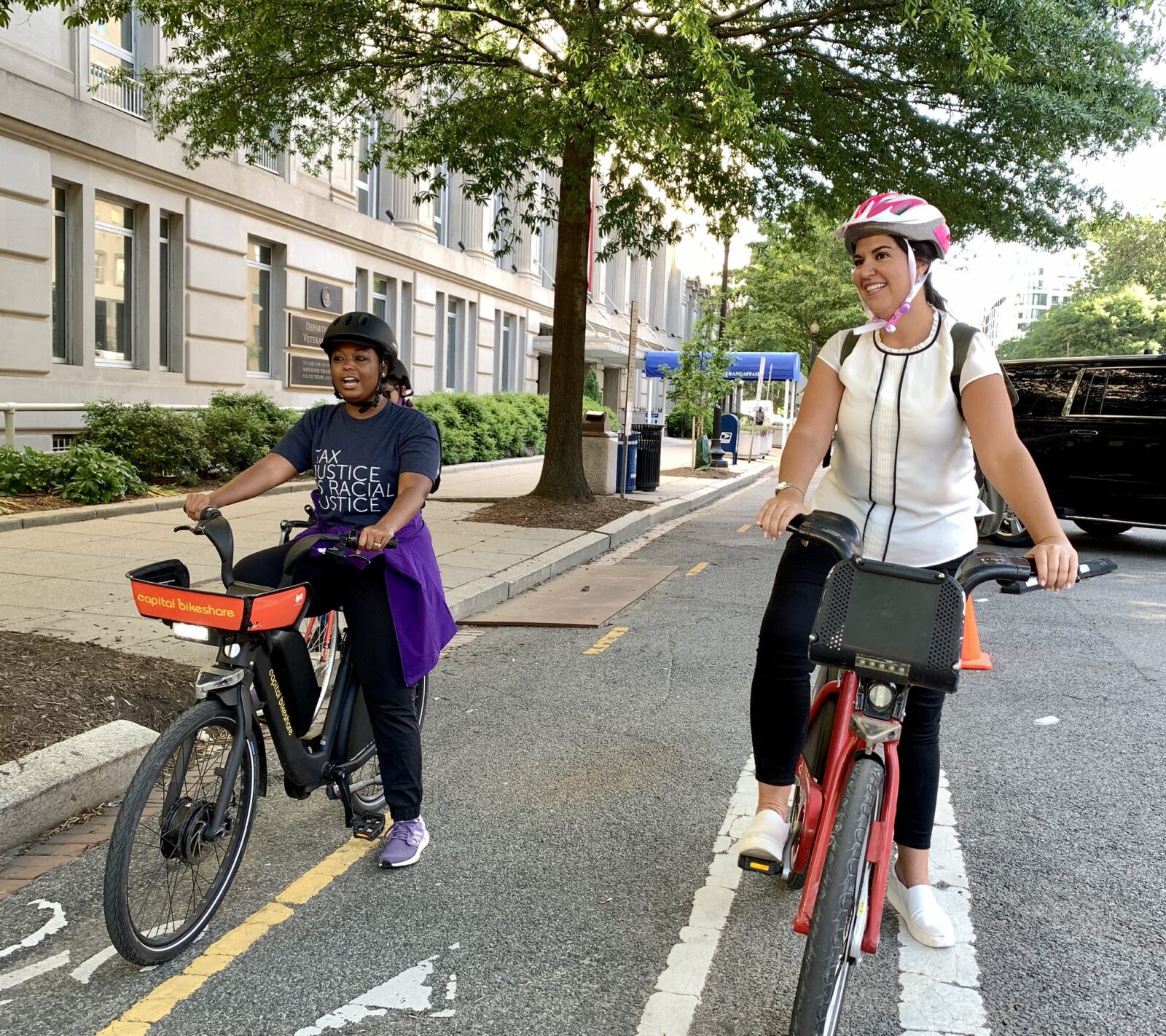DC Councilmember Brooke Pinto Broke A Campaign Finance Law - DCist

The fundraiser held on Dec. 6, 2021 was seemingly routine: a small group of well-heeled supporters gathered at the Georgetown home of real estate developer Marc Duber to contribute up to $500 a person to Councilmember Brooke Pinto (D-Ward 2).
“Help Brooke retire her 2020 campaign loans,” read an invite for the event, which ultimately netted the first-term lawmaker just over $21,000.
The only issue? The fundraiser wasn’t legal.
In what she says was an honest mistake, Pinto ran afoul of a new D.C. law that prohibits candidates who win office from fundraising to pay off campaign debts more than six months after they are elected to office. Pinto was elected to the council in Nov. 2020, and she loaned her campaign $45,000.
In late 2018, the D.C. Council passed broad campaign finance reform that took effect for the 2020 election cycle. As part of the bill, lawmakers imposed time limits on how long candidates and elected officials can keep their campaign finance committees open, and how long they can fundraise to pay down debts incurred during the campaign.
The D.C. bill also specified that fundraising could only be used to pay off up to $25,000 in personal loans to a campaign, mirroring a federal provision that gives candidates for federal office the ability to use campaign funds to pay off up to $250,000 in personal loans to their campaigns within the first 20 days after an election, but limits it thereafter. (The D.C. law allows a candidate to use whatever money they have left in their campaign account after the election to pay off debts or personal loans to the campaign, provided it happens within 12 months.)
The changes were a response to concerns raised by some good-government advocates that businesses, lobbyists, and contractors could seek to influence elected officials with well-timed donations to help pay off campaign debts, especially personal loans made by a candidate to their own campaign. In one notable example, D.C. Attorney General Karl Racine loaned his own 2014 campaign $451,000 and brought in more than $100,000 from campaign contributors after he was elected to help pay himself back. After DCist/WAMU reported on those contributions, Racine said he would cease further fundraising.
Most candidates for elected office in D.C. are now opting for the city’s two-year-old public financing program, which imposes strict limits on who can give to a campaign (and how much they can give) in exchange for offering qualifying candidates access to public funding for their campaigns. Advocates say the program empowers new contenders for office and largely minimizes past ethical concerns related to businesses and wealthy donors donating to candidates for office.
Pinto, an attorney who coincidentally worked in Racine’s office, did not use public financing when she was first elected to the council in a special election on June 16, 2020 to fill the seat vacated by former councilmember Jack Evans, who resigned in the wake of an ethics scandal involving a consulting firm he founded. She also won the June 2 Democratic primary and later the general election on Nov. 3, 2020 to earn a full term on the council. She raised more than $324,000 for both of those campaigns, loaning herself $20,000 for the special election and $25,000 for the primary and general elections.
The Dec. 6 fundraiser held at Duber’s house brought in $19,675 for Pinto’s general election committee and $2,000 for her special election committee, per filings in January with the D.C. Office of Campaign Finance. Under D.C.’s new law, Pinto could not legally fundraise to pay off debts for her special election committee after December 2020, or her general election committee after June 2021.
“I did not know about that statute,” said Pinto in an interview with DCist/WAMU, referring to the law limiting how long an official can fundraise for to pay off campaign debts or loans.
Pinto, who has been operating as her own campaign treasurer, says that in meetings last fall related to a routine audit of her campaign committees conducted by the Office of Campaign Finance, she was informed that any fundraising would have to be limited to $25,000, as the law specifies. But she says that OCF officials did not raise any objections when she mentioned she wanted to hold a fundraiser.
“During that meeting, I confirmed, ‘Is this OK for me to have a fundraiser to pay off $25,000 of my outstanding loans?’ And they said, ‘Absolutely’ and we walked through the parameters of doing so,” she said. “It’s a big deal to me because I certainly am not going to run afoul of any legal requirement.”
Wesley Williams, a spokesman for the campaign finance office, disputes that characterization. “The office provided Councilwoman Pinto with the provisions of the law including the $25,000 Maximum. We did not advise her to proceed on any fundraising activity,” he wrote in an email.
“I’m just frustrated because I hope this can all be worked out so I can repay this portion of the loans that I gave myself as I have been expecting to do,” said Pinto.
It remains unclear what will happen, but Pinto could be forced to return the money she raised.
There’s No Paywall Here
DCist is supported by a community of members … readers just like you. So if you love the local news and stories you find here, don’t let it disappear!
source: https://dcist.com/story/22/04/26/dc-councilmember-brooke-pinto-campaign-finance-law/
Your content is great. However, if any of the content contained herein violates any rights of yours, including those of copyright, please contact us immediately by e-mail at media[@]kissrpr.com.

